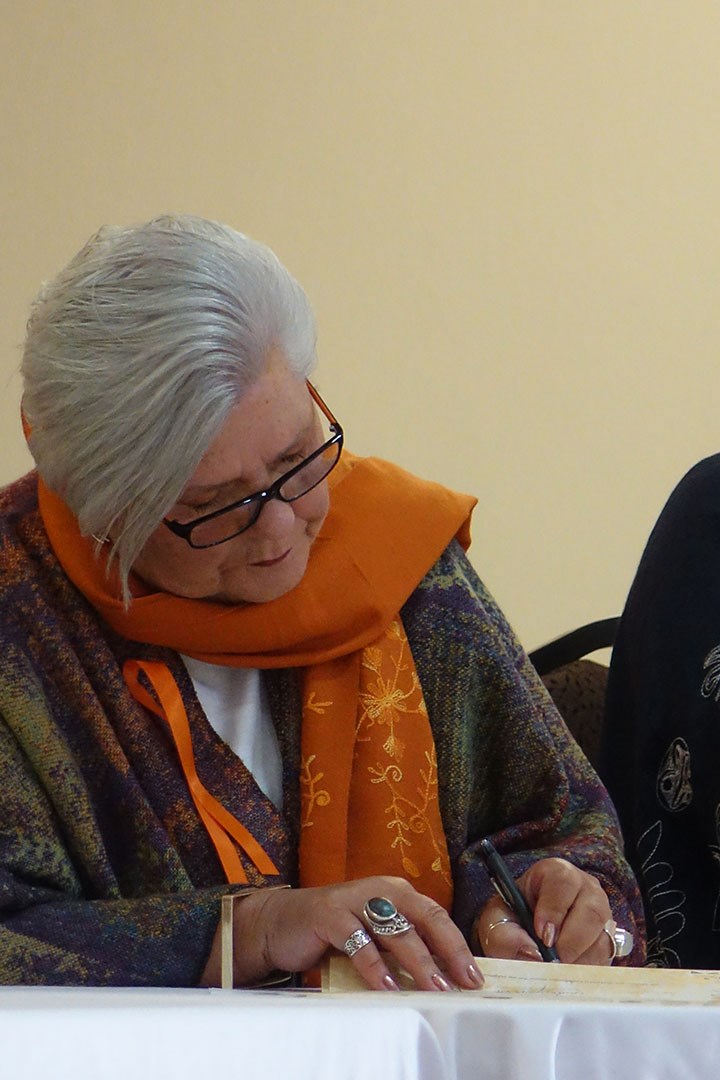If you’ve ever seen a movie or TV show where someone goes to an Alcoholics Anonymous meeting, or have been to an actual meeting yourself, you probably know that when members get up to address the group, they say their name and then follow it with “and I’m an alcoholic.”
Basically, the principle behind this is that, in order to solve a problem, you first have to be able to admit to the problem. Only then can you start making an honest effort to change.
When Manitoba Keewatinowi Okimakanak, First Nations health agency Keewatinohk Inniniw Minoayawin and the Northern Regional Health Authority signed a declaration to end Indigenous-specific racism in the northern healthcare system, the health authority was publicly acknowledging the problem of anti-Indigenous racism and beginning its journey down the road toward a future in which this problem is resolved.
Admitting a problem is the first step. And it’s a necessary step. But it’s far from being the hardest step. The devil is in the details, as they say, and it will be the details that will bear witness to whether or not the northern healthcare system can change the way it looks at and deals with Indigenous patients.
To be fair, the NRHA was not in denial about the existence of anti-Indigenous racism within the healthcare system before signing the declaration on Sept. 26. In fact, the very act of working on the declaration with MKO and KIM shows that the health authority’s leadership is already embracing the fact that change requires work and that that work isn’t always easy or comfortable.
Racism isn’t simply bigotry and slurs and holding harmful beliefs about a particular group of people based on stereotypes and learned behaviour. Those are all a part of it, to be sure, but racism is also treating one group of people differently than others based on their race, or tolerating divergent outcomes for one race and another in a country in which all citizens are supposed to be created equal. The fact that the healthcare system includes racist elements isn’t because of the people within it, per se. It’s because it is a system in a country that, for the vast majority of its history, has been racist toward Indigenous Peoples and continues to be so to this day. It’s only been about 60 years since First Nations members were granted the right to vote in Canada. The federal government, which provides healthcare services on reserves, generally only provides a bare-bones version, relying on the existence of provincial healthcare systems to fill in the gaps. The federal government spends less per student for on-reserve education of First Nations citizens than provincial governments do on students in those systems, some of whom are Indigenous and/or First Nations. Some reserves don’t offer their youth the ability to attend school all the way up to graduation, and those that wish to finish high school must leave their community in order to do so. Graduation rates for Indigenous students are much, much lower than they are for students as a whole. Indigenous Peoples’ representation amongst prison inmates in Canada far exceeds their proportion of the overall population. In basically all the important areas of life, the system has stacked the deck against Indigenous Peoples.
Signing a declaration won’t suddenly end differences in the way Indigenous and non-Indigenous people are treated by the healthcare system. But by being committed to working to change and end those differences, the NRHA is taking a tangible step toward reconciliation. The declaration was signed at the start of a week that will end with the National Day for Truth and Reconciliation. It’s a good day for Canada as a whole to open its eyes to the many ways in which Indigenous Peoples are discriminated against and to demonstrate willingness to not just say the word reconciliation but to have discussions about what kind of actions need to be taken to ensure that the process of reconciliation actually starts to take place. It won’t be a quick journey, nor an easy one, but it does need to be measurable and substantive. You can be sure that MKO and KIM plan to check back in with the NRHA and with their own citizens to gauge exactly how well it lives up to the ideals embodied by the declaration it has signed.
This editorial first appeared in the Sept. 29 print edition of the Thompson Citizen.



